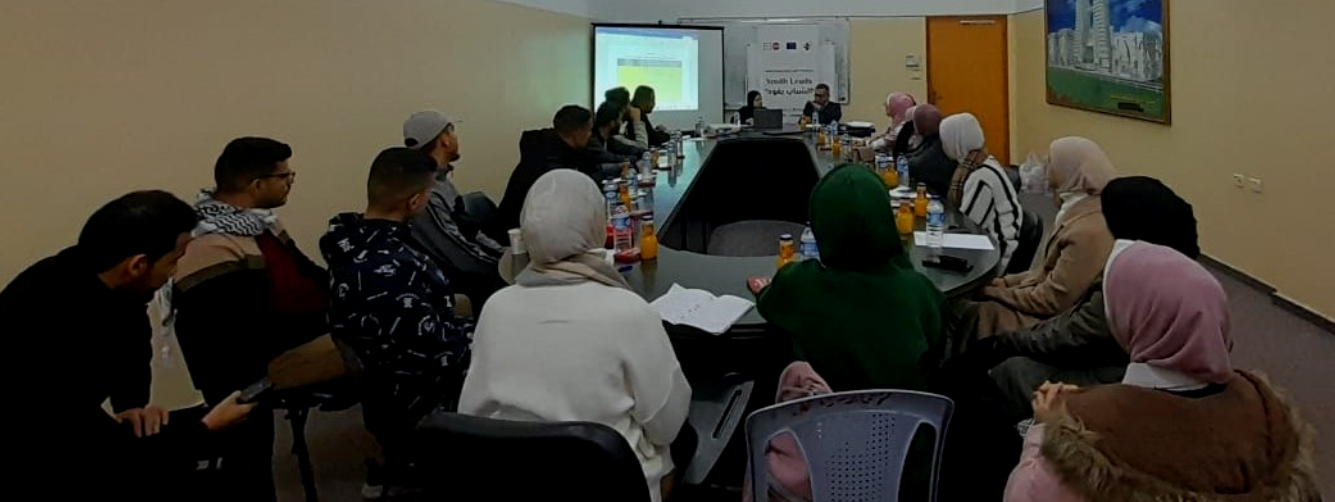The workshop, attended by 30 civil society leaders, broached several issues including an interpretation of the concept and ways for Palestinian women in Gaza to participate in the reconstruction within their socio-political and cultural reality. The workshop offered approaches on reconstruction and national reconciliation derived from international experiences. It also included a critical analysis of the national reconstruction plan from a gender perspective at the planning, execution, monitoring an evaluation levels.
Yassin Odeh, from the Working Women’s Association in the Gaza Strip and coordinator of its empowerment program said the workshop motivated participants to demand that women are part of the government’s priorities in formulating reconstruction plans for Gaza given that they are the most affected sector. “The workshop showed me the importance of integrating women, not only at the reconstruction level but at all other levels where women could contribute alongside men.”
Researcher and legal advisor Abdallah Sharshara, who prepared the report on developing the concept of reconstruction from a women’s perspective said, “No doubt, there is a close link between women’s participation in the decision-making process and capacity building on the one hand and social advancement on the other. This is because excluding women from tangible participation negatively impacts the effectiveness and success of government policies, including those pertaining to the reconstruction process. Women constitute a large percentage of victims from internal conflicts and wars (E.g. during the 2014 war on Gaza, women comprised 22% of those killed, 31.5% of the wounded and 50% of the internally displaced) which calls for a better understanding of women’s needs. This could be achieved through their participation in assessing, implementing and monitoring programs that offer them services.
Sharshara continued that from a demographic perspective, women comprise half the society. He said the population of Palestine in mid-2019 was approximately 4.98 million people – 2.53 million males, or 49%, to 2.54 million females, or 49%. “This demographic distribution calls for a different interpretation of women’s traditional roles in in the Palestinian case, which usually views women as the victim or a main beneficiary of humanitarian services without considering them as a partner in the peace-building process.”
He continued, “During the workshop the women agreed that the Palestinian case is unique in comparison to international models studied in the sessions. The Palestinian case includes a still ongoing occupation, inter-Palestinian division and institutions which Palestinians agree are need of reform. Hence, this necessitates a uniquely Palestinian definition of the reconstruction process to be able to build on. For the reconciliation process to be in line with UN resolutions, including UNSCR 1325, this requires that reconstruction plans and infrastructure reconstruction respond to three basic principles: holding the occupation responsible, reforming Palestinian institutions and achieving national reconciliation.”
The workshop concluded with a number of strategies for women to adopt so they are involved in the reconstruction process including: raising the issue of reconstruction within the context of holding the Israeli occupation accountable; ensuring a complete transitional justice system and not just a traditional reconstruction process. Meanwhile, the coalition, as a unifying women’s framework, will act to promote women’s participation in the reconstruction process and ensure women’s participation from outside of the PA’s economic and social structures, in addition to impacting future plans and strategies for the reconstruction process.
Meanwhile, MIFTAH program coordinator in Gaza, Shadia Al Ghoul reaffirmed that the concept paper on women’s participation in the Gaza reconstruction process would be later presented and discussed with a broader group of civil society institutions in Gaza to eventually produce a paper agreed on by all related women’s and rights groups. This, she maintained, would allow for the active participation of women in all levels of reconstruction as key players and not as victims. The workshop is part of MIFTAH’s “Conflict and Fragility” project, supported by OXFAM.







